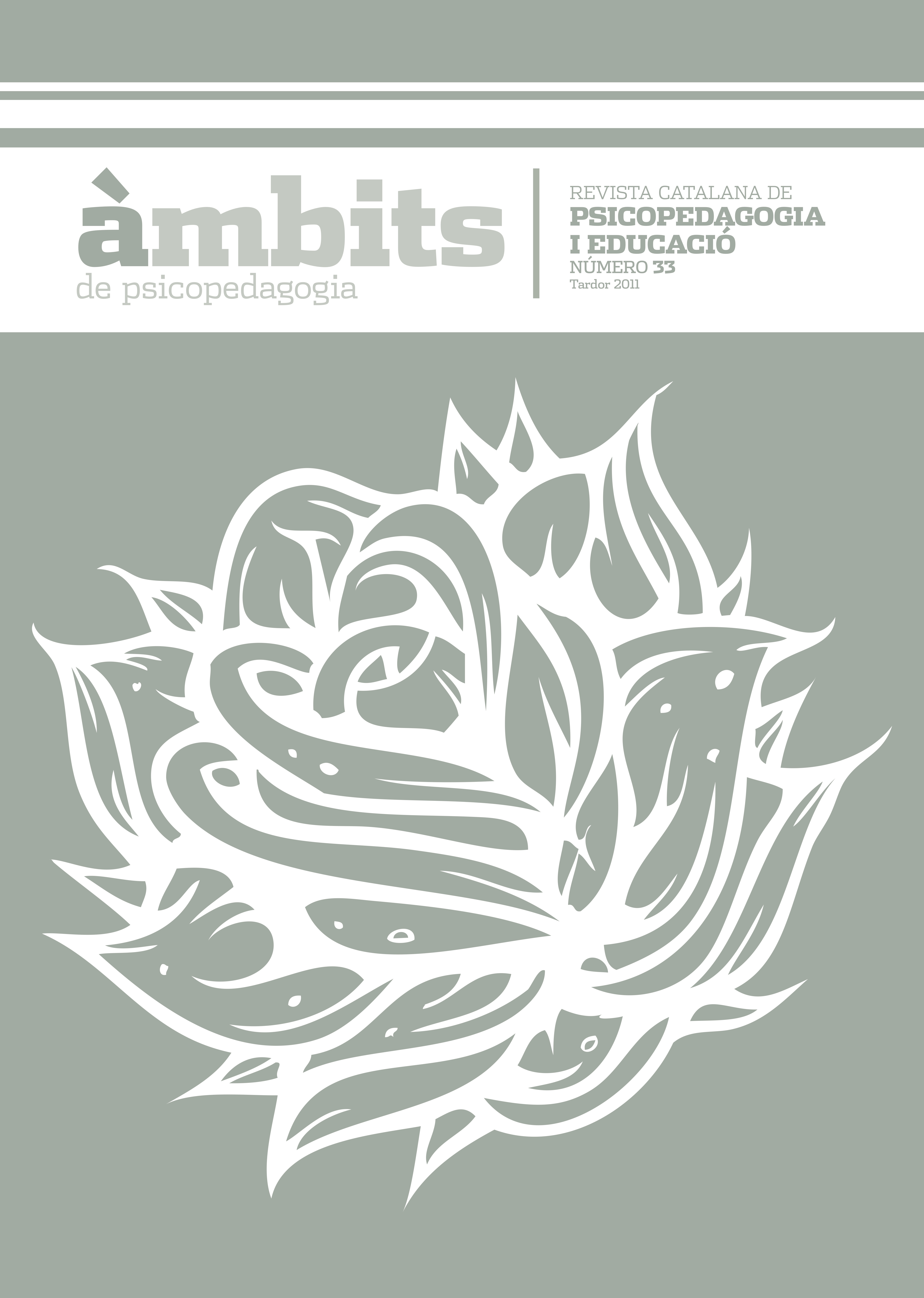Creating documents to manage students with behavior regulation problems
Abstract
In this article we aim to meet two objectives. On the one hand to show how from the creative work within the framework of a working group organized by the Pla de Formació de Zona. There is a reflection and work tools are created by students( in our case with behavioral problems). In addition to providing various professionals working with students with conduct disorder in high school. We have produced three documents, as a protocol, intended to meet and create links with students, how to intervene in times of crisis and managing conflicts in the classroom everyday.
References
AMERICAN PSYCHIATRIC ASSOCIATION (2000) Diagnostic and statistical manual of mental disorders, Fourth edition, Text Revision. American psychiatric Press, Washington DC. Edición traducida al castellano (2002) DSM IV-TR: Manual diagnóstico y estadístico de los trastornos mentales. Madrid: Masson.
Barkley, R. (2002) Niños hiperactivos: cómo comprender y atender sus necesidades especiales. Barcelona: Paidós.
Barkley, R. (2010)“El TDAH como trastorno de las funciones ejecutivas. Aplicaciones para su manejo en el aula ” Conferencias TDAH en Cantabria,
“El mundo del TDAH”. Asociación ACANPADAH (www.acanpadah.org).
Bolwby, J. (1985) La separación afectiva. Ed Paidós. Barcelona.
Geddes, H (2010) El apego en el aula. Ed Graó, Barcelona.
Geddes, H ( 2008) Jornades PRESME Noves mirades en salut mental i aprenentatge.
González, O. ( 2008) Cap a un currículum intercultural a Primària. La investigació-acció com a metodologia i la cançó com a desencadenant del canvi. UB
Labrador, F.J. (2008) Técnicas de modificación de conducta. Madrid: Plaza Edición.
NICE Guideline, National Institute for Clinical Excellence (NHS). (2005/003) Guidance on the short- term management of disturbed/violent behaviour in psychiatric inpatient settings and emergency departments. www.nice.org.uk.
Stainback, Susan. «L’educació inclusiva: definició, context i motius». Suports: Revista Catalana d’Educació Inclusiva, vol. 5, núm. 1 (2001), p. 18-5.
Downloads
Published
Issue
Section
License
The authors maintain their copyright and give the right to the first publication of the work to the journal, registered under a Creative Commons Attribution-Non Commercial-NoDerivs license. This license allows others to download the works and to share them with others as long as they credit the author, but it does not allow for any kind of modification or commercial use.















